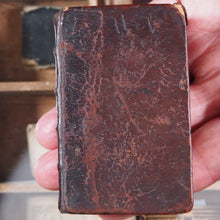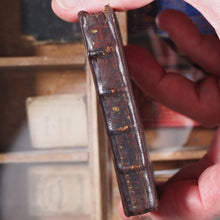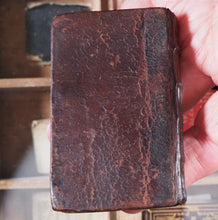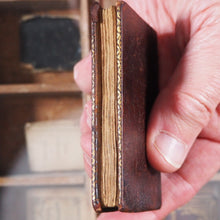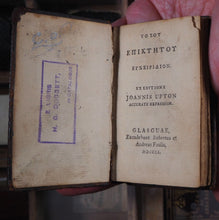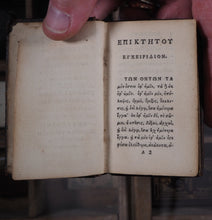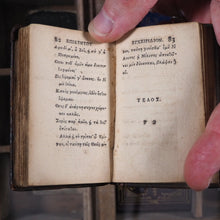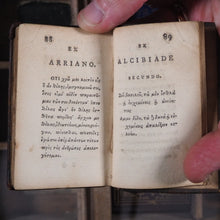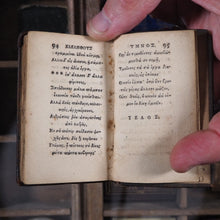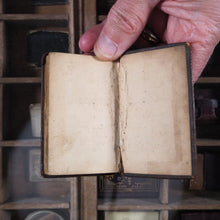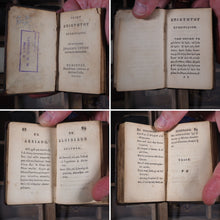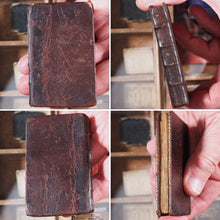
Title: To tou Epiktetou encheiridion. Ex editione ...
Publisher: Glasguae [Glasgow] Excubdebant Robertus et Andreas Foulis.
Publication Date: 1751
Binding: Hardcover
Condition: Very Good
Edition: 1st Edition
32mo in 8s. 95, [1] printed pages, on laid paper, Edited by John Upton. Printed ex libris of H.G. Doggett on front paste-down endpaper. 49 x 72mm. Contemporary brown calf, gilt scrollwork on board edges; richly patinated (hinges sympathetically strengthened; corners slightly worn; gilt on spine largely rubbed off). First miniature Foulis edition of Epictetus solely in Greek; there was an earlier 1748 duodecimo edition in Greek and Latin. A 1765 reissue was reset, according to ESTC. The 18th-century miniature editions of Greek classics by the Foulis brothers in Glasgow were highly praised in their day - reputedly, Boswell called the Foulis brothers, "the Elzeviers of Glasgow". The Enchiridion or Handbook of Epictetus is a short manual of Stoic ethical advice compiled by Arrian, a 2nd-century disciple of the Greek philosopher Epictetus. Although the content is mostly derived from the Discourses of Epictetus, it is not a summary of the Discourses but rather a compilation of practical precepts.Greek philosopher Epictetus
(c.50-c.135AD) is best-known for his
contribution to Stoicism
Born into slavery, he served in
the household of Epaphroditos, a
wealthy freedman and secretary to
Roman emperor Nero. In spite of
his status, he was allowed to study
philosophy and gained his freedom
after Nero's death.
He went on to set up his own
philosophy school before falling foul
of Emperor Domitian's decision to
banish all philosophers from Rome
in 93AD. He relocated to Nicopolis
in Greece, where he continued his
teachings.
Although Epictetus wrote nothing
himself, his devoted student Arrian
documented his work culminating
in the Enchiridion otherwise known
as the Handbook or Manual. The
work distils Epictetus' teachings on
personal ethics, virtue, and self-
control, supplying a method for
navigating the challenges of life.
In it, the reader will find guidance
such as: "We cannot control the
external events around us; we can
control ourselves. It is not things that
trouble us, but our judgments about
things" and ""Circumstances do not
make the man; they merely reveal
him to himself"
The text became popular later
thanks to the Latin translation by
Angelus Politianus, first printed
in 1498, European vernacular
translations began with a French
translation in 1538 followed by
versions in Italian and Dutch in
1564.
Bondy, 24. Gaskell, 190. Nauroy, 51. Spielmann, 9. Welsh, 2680. Seller Inventory # 5309












